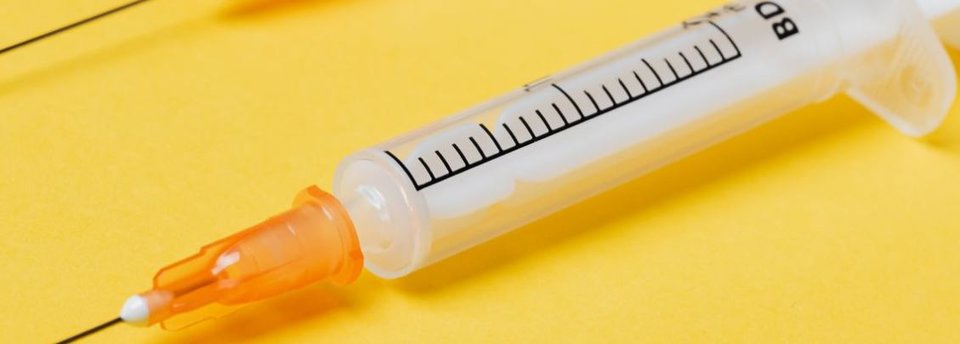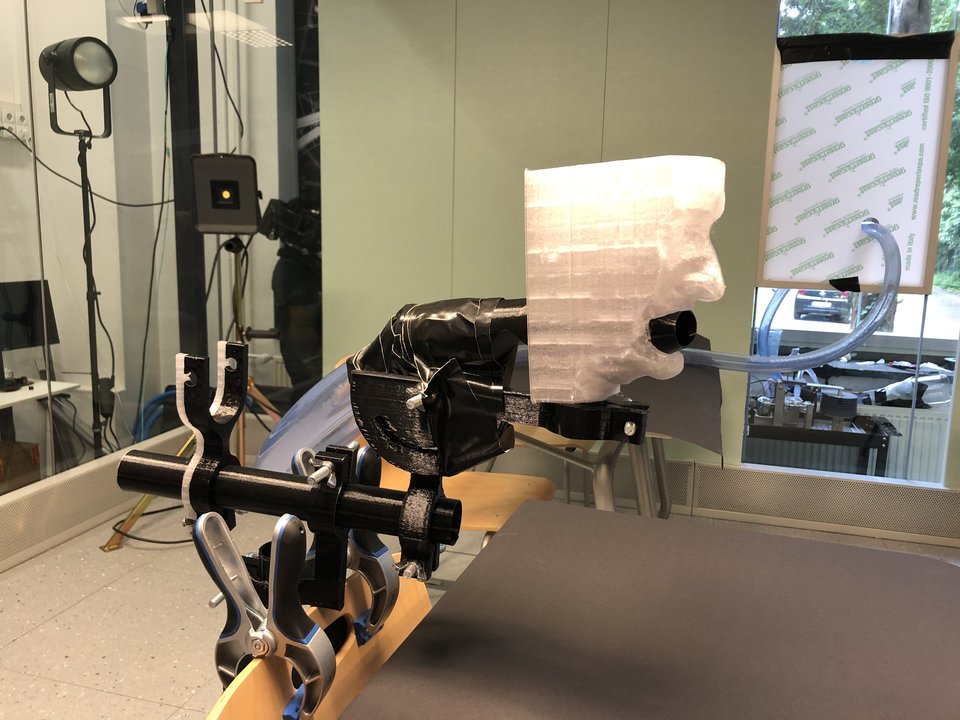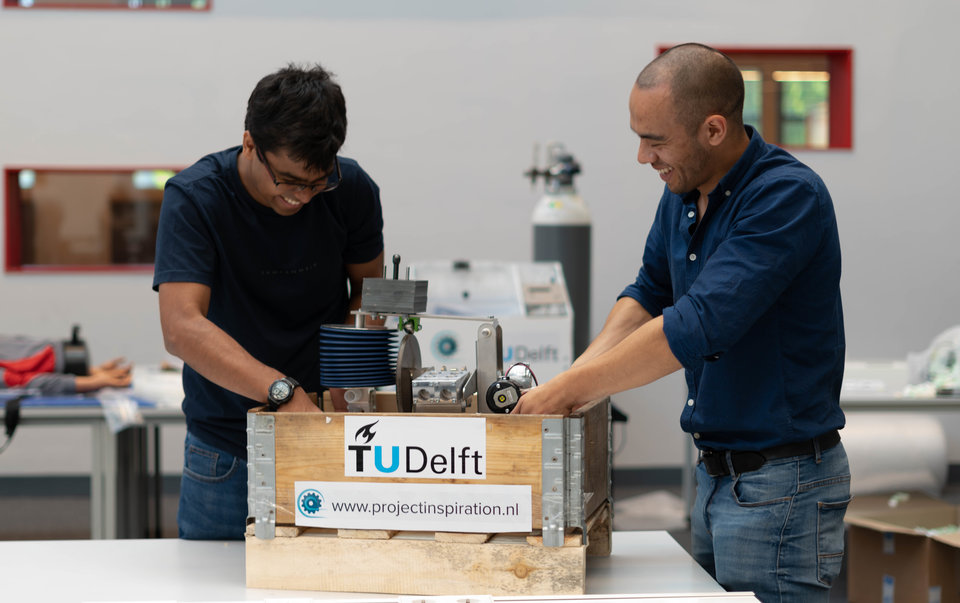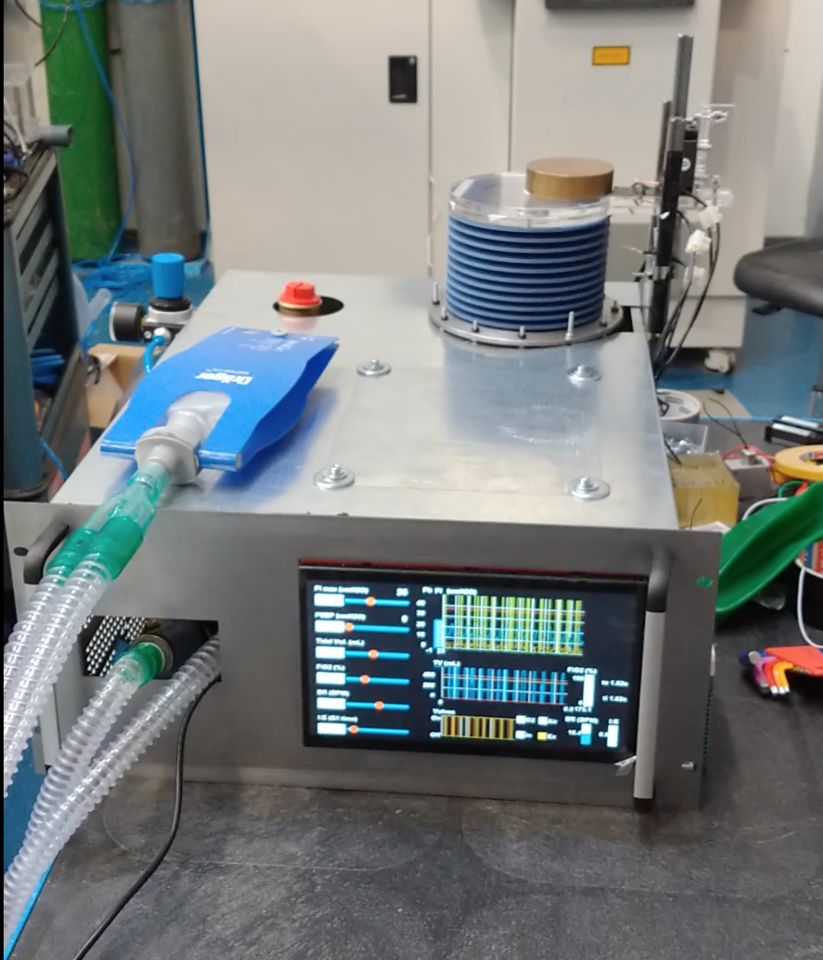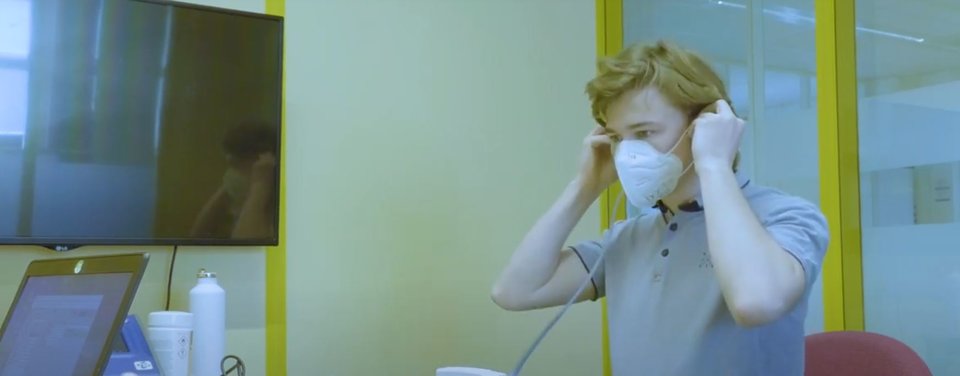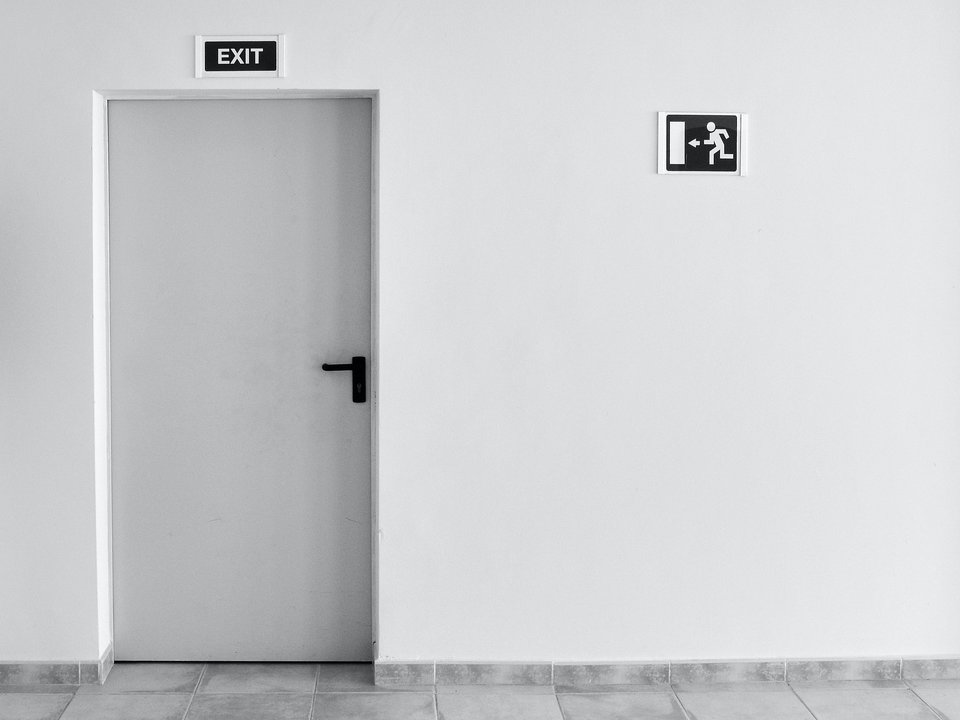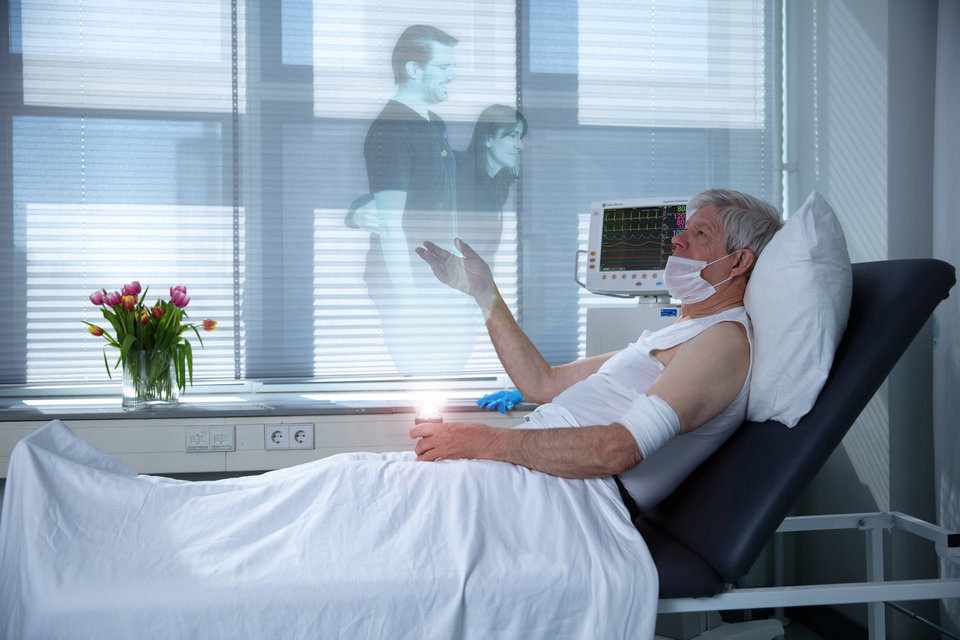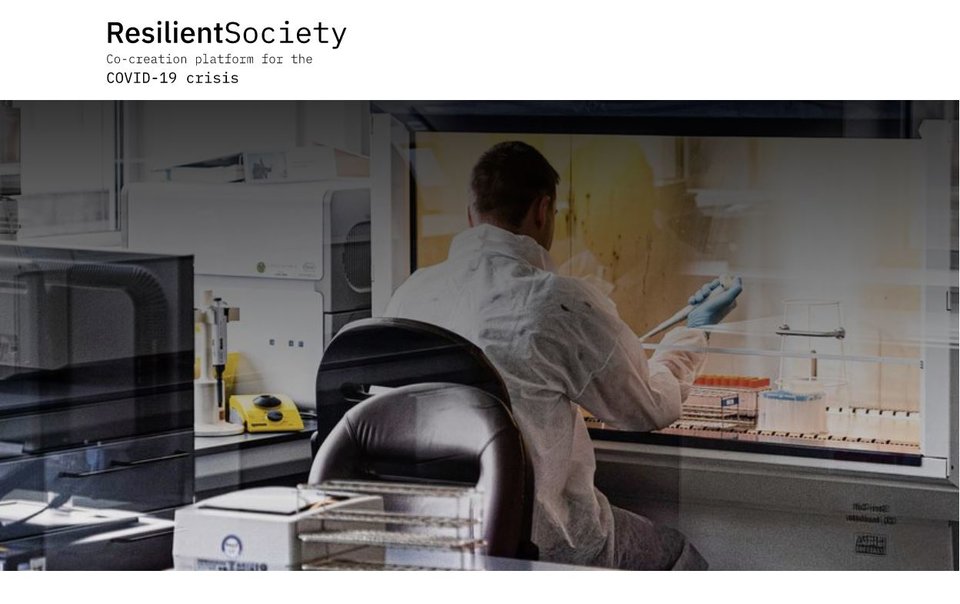Supported Projects | TU Delft COVID-19 Response Fund
Thanks to donations from TU Delft alumni and donors of Delft University Fund, 31 projects have already received support from the TU Delft COVID-19 Response Fund. The selection committee consists of Prof.dr. Theun Baller (Dean Faculty of Mechanical, Maritime and Materials Engineering), Prof.dr. John Schmitz (dean Faculty Electrical Engineering, Mathematics and Computer Science) and Prof.dr. Dirk Jan Veeger (head department Biomechanical Engineering). The following projects receive a financial contribution from the TU Delft COVID-19 Fund:
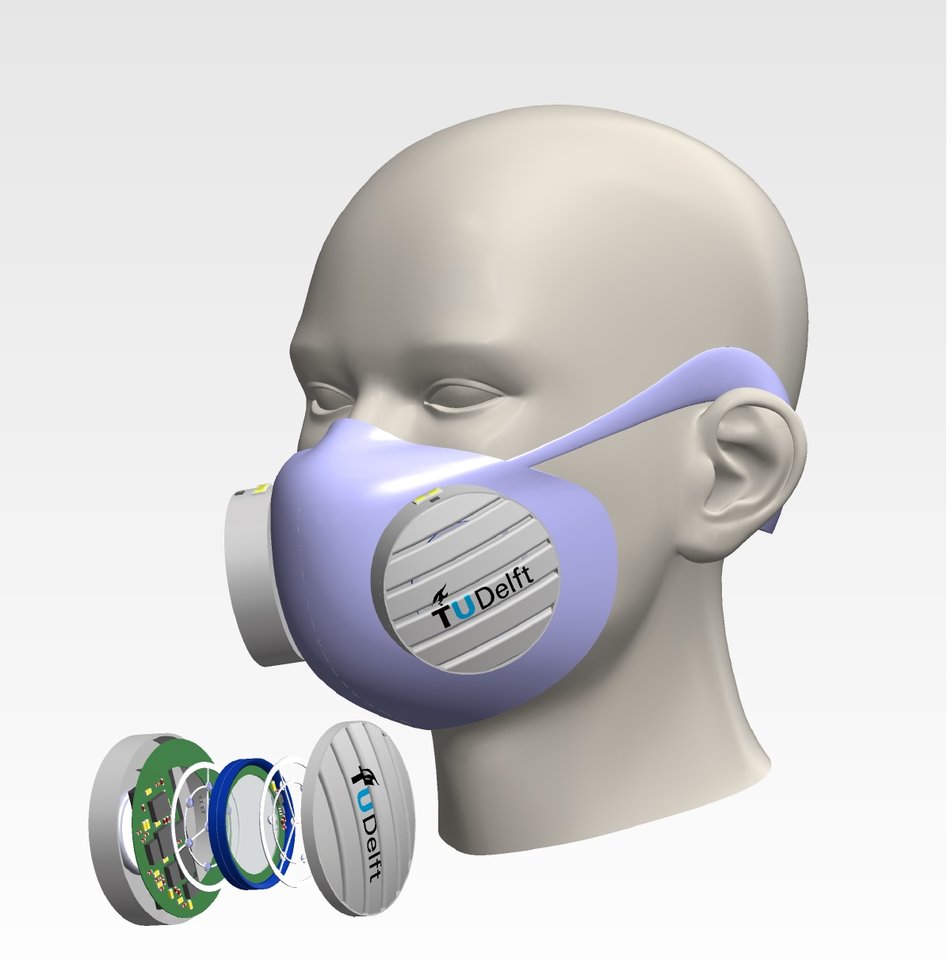
Smart Personal Protective Equipment
The current COVID-19 pandemic shows the necessity of personal protective equipment such as face masks. In March 2020, a bachelor students research team at the Faculty of Electrical Engineering Mathematics and Computer Science (EEMCS) decided to switch their already running bachelor graduation project into a topic that could provide a solution to the increasing need of personal protective equipment. Their approach is to enrich conventional air filters with advanced electronic functions such that air filters becomes smart. In the project, a filter module for a face mask is designed with an in-situ ultraviolet sterilisation technique, on board power and sensors to monitor the filter performance. Such advanced smart filters could serve as a key module in novel type of smart personal protective equipment or in other critical air filtration applications.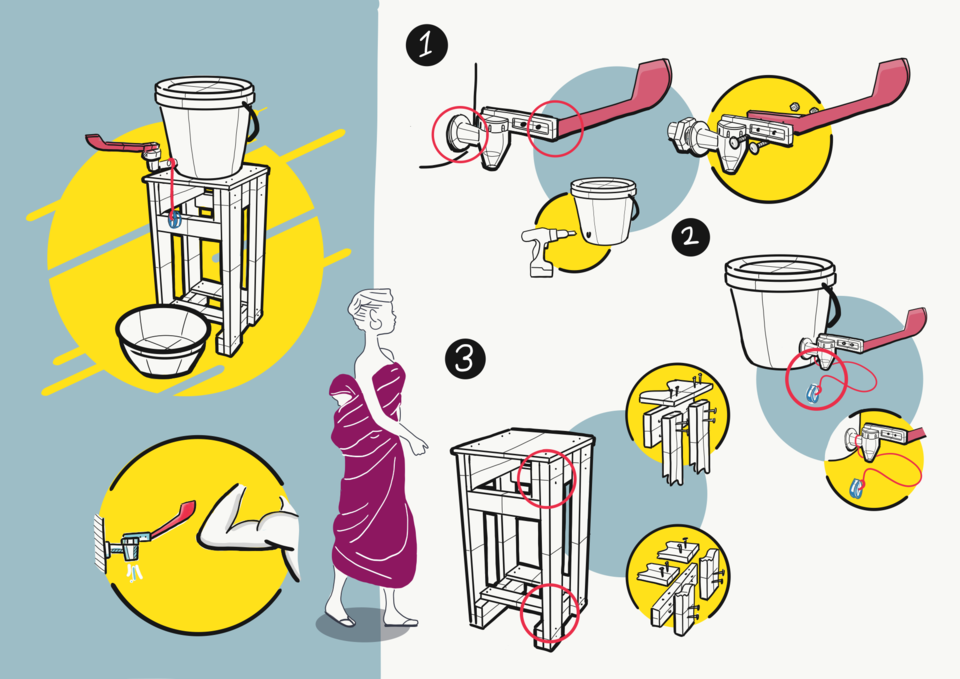
Toolkit on how to build hand wash stations
Clean hands are the last line of defence to minimise the chances of infection and communication is key to ensuring awareness of the benefits and consequences of poor hygiene. TU Delft researchers working on the African Water Corridor Initiative are designing a toolkit to communicate different methodologies that aim to guide people on how to build hand wash stations with the use of local materials and craft. The toolkit will also act as an educational tool on the sanitary practices and their importance to prevent diseases. The toolkit will consist of both printed and digital formats, including posters, booklets and an app. The kit will also be distributed via the YEP (NWP) organisation. Red Cross, Wash Alliance and Unicef have also expressed interest. Furthermore, the applications will be made by African software developers.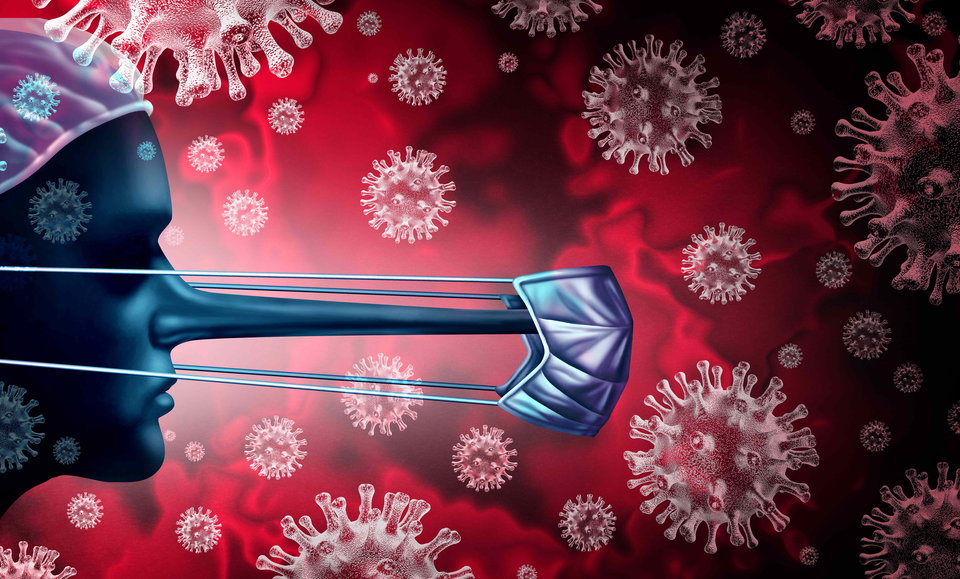
Scientific communciation in times of Corona virus
Along with health and social challenges, the corona virus also causes communication challenges driven by the (lack of) information or misinformation. The scientific community is facing serious communication challenges which put to the limit the capacity of the scientific communication system in order to work efficiently. Researchers at the Faculty of Electrical Engineering, Mathematiscs and Computer Science (EEMCS) started a project to provide analytical tools that help decision making on the strategies pursued by institutions and research organizations on coordinating their scientific efforts to communicate their results, and respond in an efficient way to the communicational challenges that the coronavirus crisis has brought to the scientific communication system.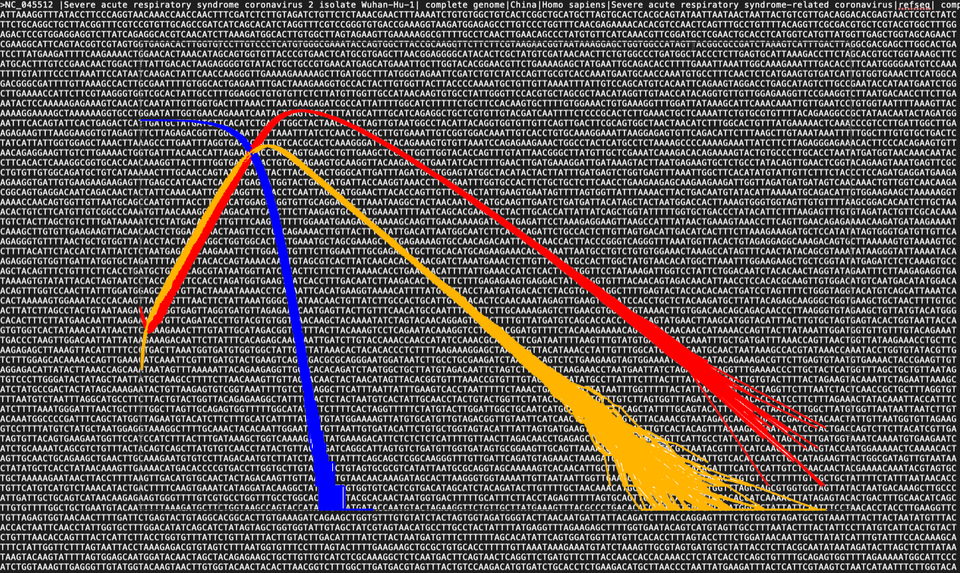
How to outcompete SARS-CoV-2
Covid-19 results from an infection by the SARS-CoV-2 virus. . One hallmark of these viruses is that they have a relatively long genome and evolve rapidly due to their high mutation rate. This combination has important implications for its evolutionary course, and for whether antiviral treatments and vaccination strategies will succeed. Researcher from the Faculty of Applied Sciences have developed a theoretical model for the evolution of SARS-CoV-2. With this model, we they will address questions such as: How fast does SARS-CoV-2 evolve within an individual during infection? And what are the probabilities of re-infection of an immune or recovered individual? This reserach aims to provide the theoretical groundwork needed to assess the feasibility of vaccination and treatment strategies and contribute to the scientific literature of viral evolutionary dynamics.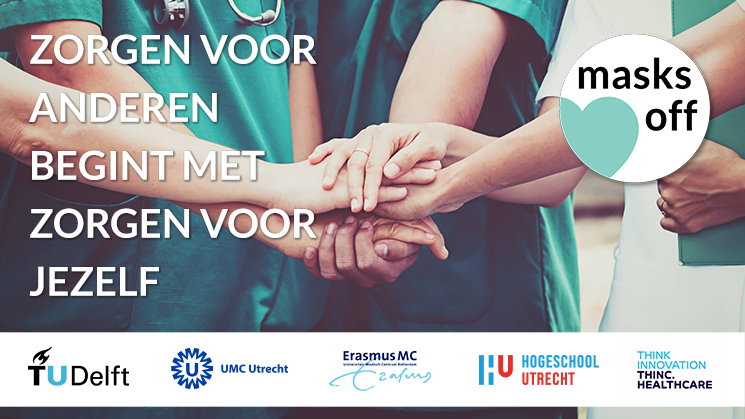
Masks Off
Masks Off is an online platform that supports nurses in the Netherlands in preserving their long term mental health and resilience by giving them a voice to share their daily experiences (e.g., struggles, tips, happy moments). The platform consists of aninteractive social media platform and a website that offers official information by mental healthcare institutions.

Endoscope
Researches investigate which specific Operative Risk Issues to consider in case of abdominal surgery in patients during a COVID- 19 pandemic.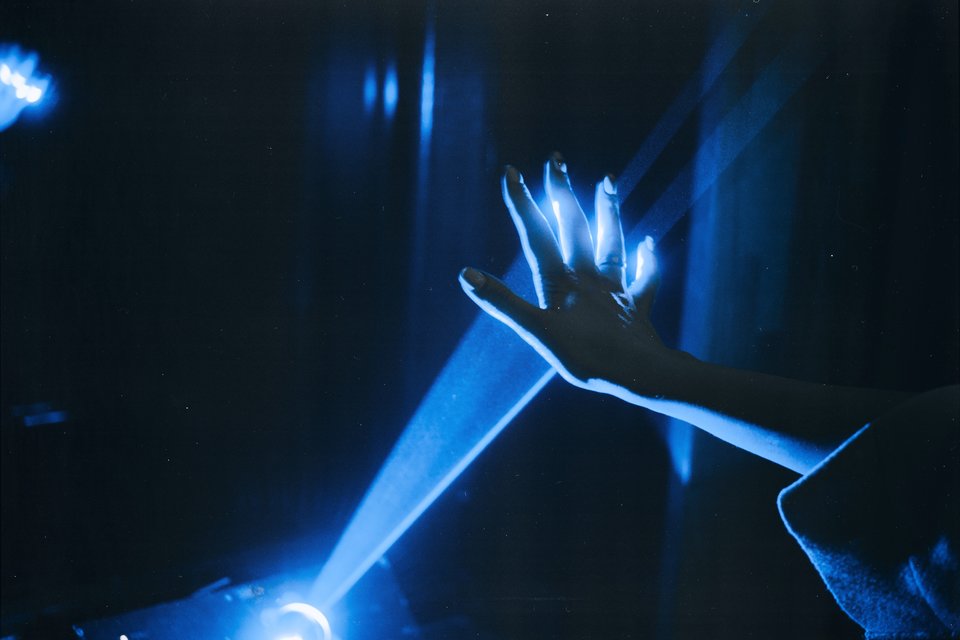
Multifunctioneel UV-C LED test platform
UVC light destroys viruses and bacteria in a very effective way. The energy of the UVC light disrupts the DNA/RNA and prevents microorganisms from being able to divide. To better understand this, Kouchi Zhang (TU Delft) wants to develop a testing platform together with Ron Fouchier (Erasmus MC). In the near future they also hope to come up with mini-UVC LED decontamination devices that can be linked to door handles, taps, lift buttons or even smartphones.Kouchi: ‘Currently we are working incredibly hard to understand the effects of UVC-LED light on the coronavirus. With the knowledge we acquire, we hope to be able to paralyze the virus. The contribution from the TU Delft COVID-19 Response Fund is very welcome support and will hopefully bring our search to the next step.’
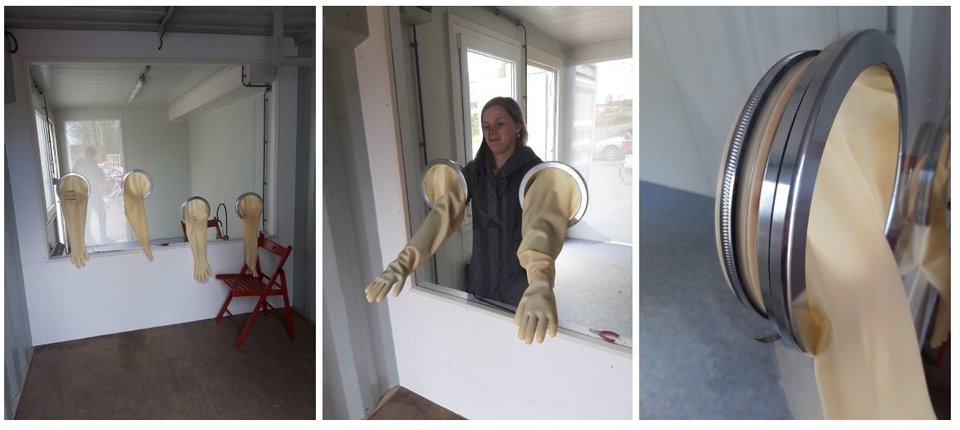
Project Safeguard
Project SafeGuard aims to alleviate the pressure on the Dutch healthcare system by building mobile testing facilities in which patients can be helped without the healthcare workers needing personal protective equipment. For the Dutch general practitioners this team is developing the ‘MediTent’: mobile testing centres, placed next to GP offices, in which healthcare workers can conduct tests, separated from patients by a transparent wall. They are also working on the ‘MediShield’ for immobile patients. With these two concepts the healthcare system can partially be alleviated without the need for personal protective equipment. The project is led by students from the MSc Strategic Product Design (with guidance from professors from Industrial Design Engineering: Bart Bluemink and Deborah Nas).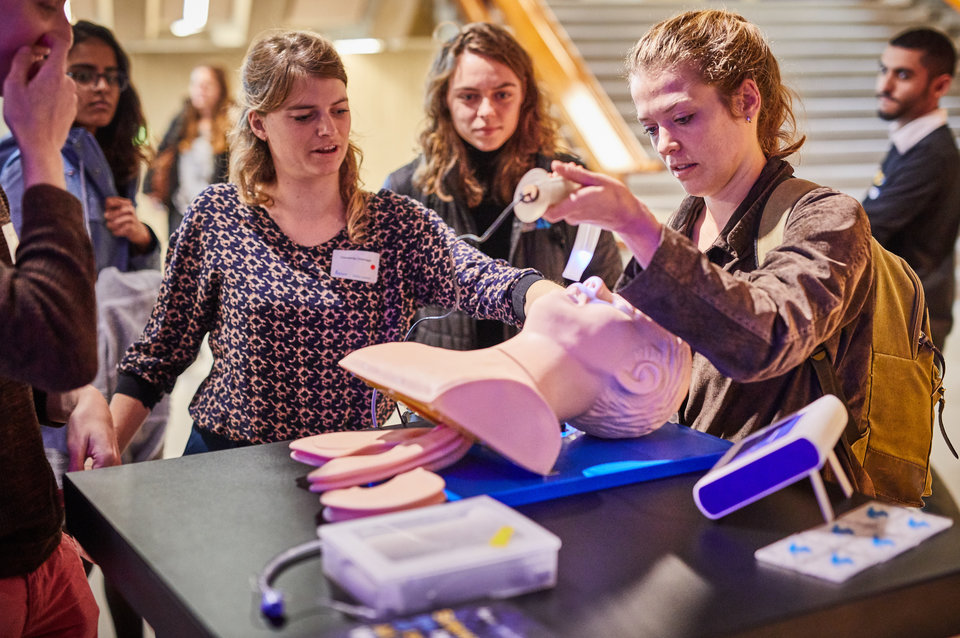
DelftScope: affordable video laryngoscope
Patients that need oxygen through a breathing tube, often have it placed with the help of a direct laryngoscope. However, since the corona pandemic, the demand for placing such a tube with the help of a video laryngoscope (VL) has increased. The use of a video laryngoscope enables a bigger distance between healthcare worker and patient: the healthcare worker can look at a screen instead of in the mouth of the patient. Video laryngoscopes are hardly available in low and middle-income countries, mainly because it is too expensive. DelftScope is an already developed VL with a low-priced USB camera that it connected to a smartphone. Developing an app that works on all phones is a long and costly process. In order to not lose valuable time, the team also works on a prototype of a low-cost special screen with a minimal user interface.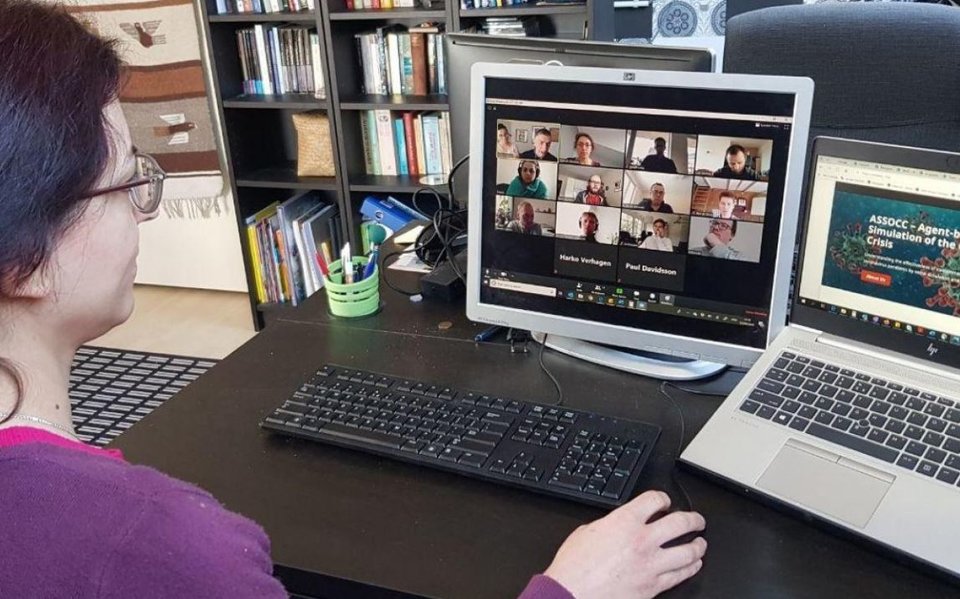
Agent-based simulation of the corona outbreak
Virginia Dignum and Amineh Ghorbani are part of a team of researchers that is involved with the development of a coronavirus simulation model. The team wants to contribute to a better understanding of the effect of the corona pandemic on humans, society and economy, both on the short and long term. They do this with the help of a technology called agent-based-modelling, a tool which can simlate the way a population responds to certain measures. This tool can support decision-makers to experiment and evaluate possible interventions and their combined effects in a simulated and controlled world.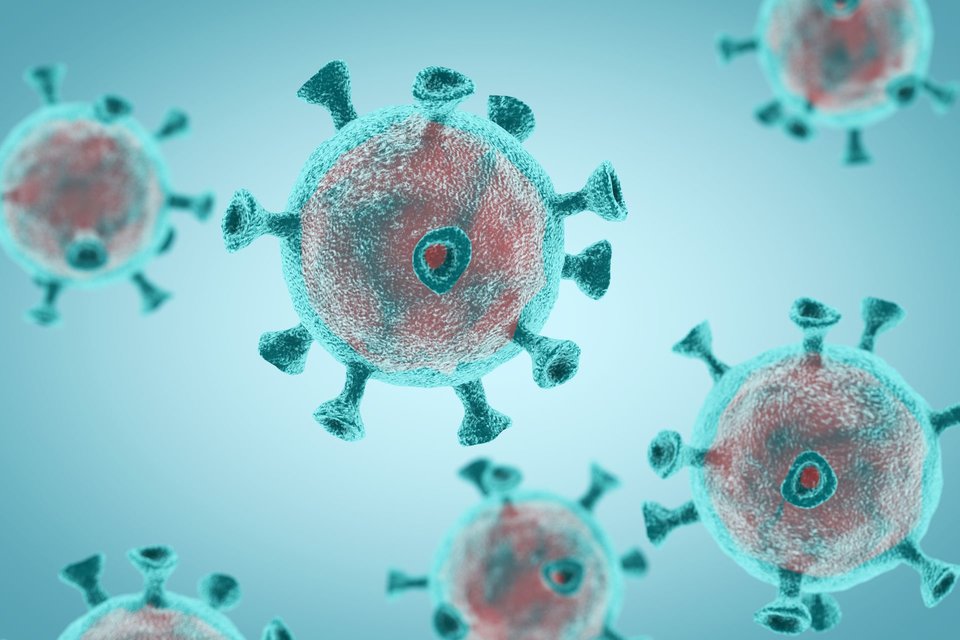
Development of CFD App for simulation of virus spreading
Researchers from the Faculty of Mechanical Engineering (ME) and Aerospace Engineering are working on the development of a Computational Fluid Dynamics (CFD) app for simulation of virus spreading. CFD simulations can help engineers to estimate the infection risk in particular circumstances. Running adequate simulations requires very specific expertise to adequately model the action of the infected human within the environment. The goal of this project is that all CFD simulation engineers can estimate the risk of infection and virus spread for their specific location (restaurant, bar, theater, etc.) and their specific solution (airconditioning system settings) without the need for in dept knowledge on the cough or sneeze behavior.
